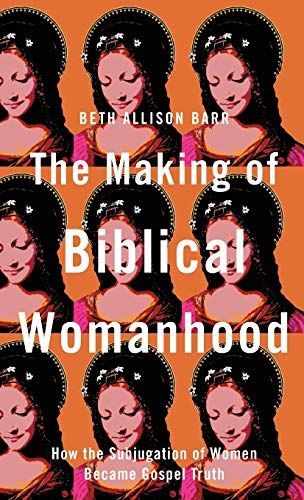
The Making of Biblical Womanhood How the Subjugation of Women Became Gospel Truth
"A powerful work of skillful research and personal insight."--Publishers Weekly Biblical womanhood--the belief that God designed women to be submissive wives, virtuous mothers, and joyful homemakers--pervades North American Christianity. From choices about careers to roles in local churches to relationship dynamics, this belief shapes the everyday lives of evangelical women. Yet biblical womanhood isn't biblical, says Baylor University historian Beth Allison Barr. It arose from a series of clearly definable historical moments. This book moves the conversation about biblical womanhood beyond Greek grammar and into the realm of church history--ancient, medieval, and modern--to show that this belief is not divinely ordained but a product of human civilization that continues to creep into the church. Barr's historical insights provide context for contemporary teachings about women's roles in the church and help move the conversation forward. Interweaving her story as a Baptist pastor's wife, Barr sheds light on the #ChurchToo movement and abuse scandals in Southern Baptist circles and the broader evangelical world, helping readers understand why biblical womanhood is more about human power structures than the message of Christ.
Reviews
Erin Darlyn@erindarlyn
Jonathan Tysick@jtsick6
Amy Vicknair@ammee411
Sarah Vaughan@sarahlee1164
Sloan, Kara@kayraw
Elizabeth Garza@pocketedition
Dan Slozat@danfromthelibrary
E S@longflight
big ab@snapitsabbey
Jacalyn Boggs@ladyozma
Brian Cotie@bcotie
Laura Porch@lpswims
Jaime May@jaime-may
Jessica Takacs@jestak
Adam Jahnke@adamyonk
Meredith Rose@meredithrose
Neva Davies@booksofunknownorigin
Highlights
Maria@arquimidea